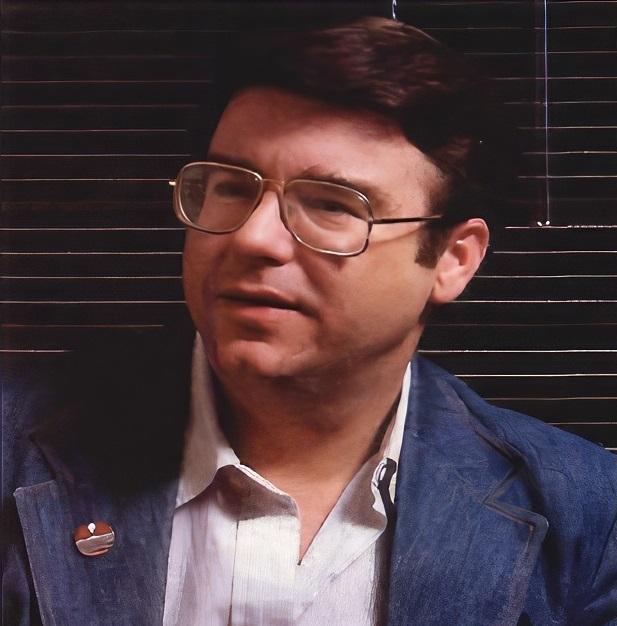William Von Meister was an innovative entrepreneur who played a significant role in pioneering the early online services of the 1980s. He was born in New York City on February 21, 1942, into a noble German family that had ties to Kaiser Wilhelm II. Although he attended Yale University, he dropped out after two years to focus on his business ventures. Von Meister had a knack for identifying emerging technologies and creating new companies around them. He founded or co-founded more than a dozen companies in various fields, including music distribution, satellite communications, video games, and online education.
Among the many companies Von Meister launched, he is best known for his role in launching The Source and Control Video Corporation (CVC), two of the precursors of modern internet services. The Source was one of the first online services that offered subscribers access to news, information, entertainment, and communication features through their personal computers. Von Meister launched The Source in 1979, along with his partners at Reader’s Digest. The Source competed with CompuServe, another early online service that focused more on business users. The Source was the first online service to partner with major media outlets like The New York Times and NBC News to provide content to its users.
CVC was founded by Von Meister in 1983 as a company that sold video games through telephone lines. Users could download games from CVC’s servers to their Atari or Commodore computers for a fee. CVC also developed a service called GameLine that allowed users to play games online with other players. However, CVC faced financial difficulties due to low demand and high costs of its services. It also faced legal challenges from Atari, which claimed that CVC violated its patents and copyrights.
Together with Steve Case, who was then a marketing consultant for Control Video Corporation, Seriff founded Quantum Computer Services in 1985 (restructured from CVC). The company initially offered an online service called Quantum Link, which was designed for the Commodore 64 home computer. Quantum Link provided users with access to online games, chat rooms, and email, as well as news, weather, and other information.
In 1989, Quantum Computer Services changed its name to America Online (AOL) and expanded its services to support other computer platforms, such as Apple II, IBM PC, and Macintosh. AOL quickly became one of the most popular online services of the 1990s, with millions of users accessing its various features, including email, instant messaging, online forums, and news.
AOL’s success paved the way for the growth of the internet and the emergence of other online services, such as Yahoo!, MSN, and Google. The company also played a key role in the dot-com boom of the late 1990s and early 2000s, with its stock price reaching an all-time high of $94.50 in December 1999.
However, AOL’s fortunes began to decline in the early 2000s as the popularity of broadband internet connections grew and users began to migrate away from dial-up services. In 2001, AOL merged with Time Warner in a deal valued at $165 billion, but the merger proved to be a disappointment and AOL struggled to adapt to the changing online landscape.
In 2009, AOL was spun off from Time Warner as an independent company and began focusing on advertising and content production. Today, AOL is a subsidiary of Verizon Media and operates various online brands, including HuffPost, TechCrunch, and Engadget.
Despite its ups and downs, AOL remains an important part of the history of the internet and a reminder of the early days of online communication and social networking.
Von Meister continued to create new ventures until his death on May 18, 1995. He died of cancer at the age of 53 in Washington D.C. Although his family and friends remembered Von Meister as a man who lived life to the fullest, with a fondness for fast cars, fine wines, and pretty women, he was also known for his relentless drinking problem and his inability to follow through on both his business and personal life.
At his informal memorial service on May 20, 1995, in Great Falls, Virginia, Von Meister’s friends and family invited anyone with a memory of him to speak. Steve Case attended the memorial service and spoke about Von Meister’s contributions to the success of America Online. Without Von Meister, there would have been no America Online, Case said. The idea of AOL seemed bizarre to Von Meister’s family, who thought that most of Bill’s many business forays had ended in utter failure. Bill Von Meister died broke, with huge debts, including hefty medical bills and burgeoning mortgage demands, and very little to show for his itinerant journey from one hopeful start-up venture to the next.
Indeed, Von Meister’s obituary in The Washington Post placed his notice fourth, buried on page four of the Metro section, behind death notices for a prominent doctor, a gallery owner, and a church leader. Von Meister was passing unnoticed into obscurity, except for the words of those gathered in a large circle in the garden on that sunny Saturday afternoon.
Marc Seriff, who had become AOL’s chief technologist, attended the service and realized the depth of gratitude he owed to Von Meister. Von Meister had saved him from losing his job and had helped him get a fresh start at AOL. Seriff began thinking about how he could repay Von Meister’s kindness and created a service that would allow people to connect with each other using their modems and phone lines.
References:
- http://web.archive.org/web/20100222130048/http://www.johnmwillis.com/aol/the-story-of-a-pathological-entrepreneur/
- https://en.wikipedia.org/wiki/William_von_Meister
- https://archive.nytimes.com/www.nytimes.com/books/first/s/swisher-aol.html?scp=15&sq=soul%2520demise&st=cse
- https://en.wikipedia.org/wiki/File:WilliamvonMeister1989.png










